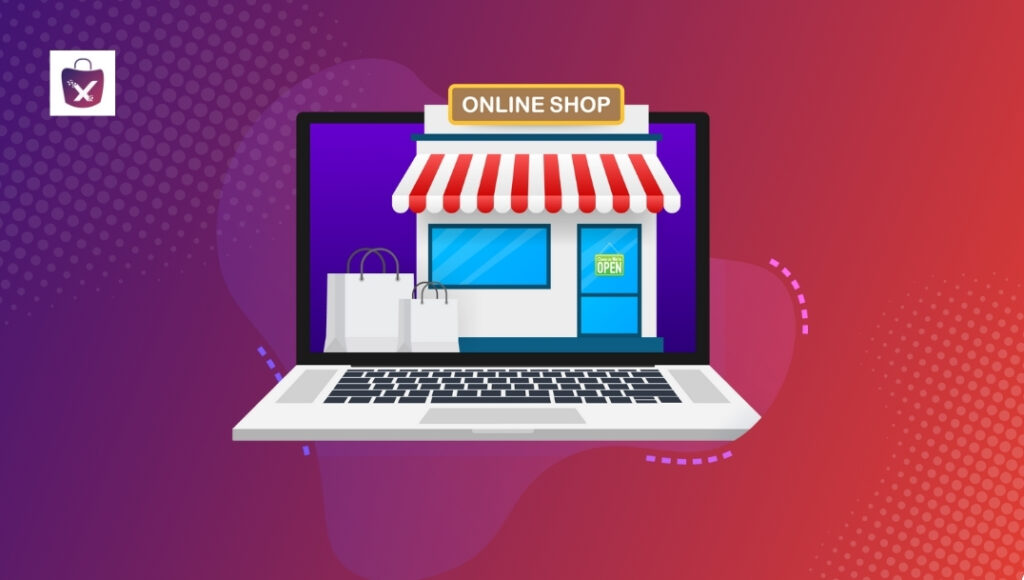Why marketplaces? You may ask. Let me answer the question with an example when Martin Cooper made the first cellphone call in the early 1980s, it started a revolution in telephonic communication. Forty years later, It has reached a point where today you cannot imagine a world without cellphones. Cell Phones today are a necessity rather than a commodity that you can do without. The key word here is revolution; and as cellphones revolutionized telephony, we know online marketplaces have revolutionized the world of e-commerce.
How? The forecast is that global marketplaces like Ebay, Amazon and Alibaba will own almost 40% of global online retail market within five years. There is more, a study conducted by the Ecommerce Foundation and Nyenrode Business University called “Rise of the Global Marketplaces“, points that marketplaces Alibaba and Jingdong mall controls a whopping 80% share in the online retail market of China, a country that houses 19.24% of the world population.
Not only that, in Germany – Amazon DE and otto, both online marketplaces, has a
55% market share in the online retail arena, similarly in Australia and Japan, the share of online marketplaces in online retail is 34% and 40% respectively. These percentages do not tell the whole story, MPLogix an IT company conducted a study on Online marketplaces and the figures that came up are mind-boggling. The growth of online retail in the US during 2012-2017 is forecast at 10% whereas the annual growth rate of online marketplaces in the same period is forecast at 22%, that is double the growth rate of online retail.
These stats are a testimony to the dominance of online marketplaces in E-retail. Vijayanta Gupta, head of Product & Industry Marketing and Industry Strategy EMEA at Adobe talks about online marketplaces, “We noticed that there is unanimous respect among retailers and brands regarding the data-driven and customer-centric engagement strategy that marketplaces typically have. It is clear that the rise of the global marketplaces was inevitable in this increasingly interconnected and interdependent global economy that we all are a part of. So retailers and brands should focus on how to leverage the rise of marketplaces for the benefit of their business.”
Now we are going to talk about the specific reasons why these marketplaces have been wildly successful and why they are the future of E-commerce. There are two perspectives you need to look at: the buyer and the seller.
From a Seller’s perspective:
-
Access to markets and consumers:
If you are a seller selling goods on an online marketplace you would know the huge consumer pool these marketplaces have. For example- Amazon is the largest online retailer in the US and it has over 100 million active users. Sellers on Amazon receive more average orders than any other marketplace or e-commerce site. E-bay another marketplace and a leader in its niche has 157 million active buyers. It has been reported that sellers selling on online marketplaces make 38% more revenue compared to sellers who do not sell on online marketplaces.In India, according to a joint report by Snapdeal and KPMG India, 46% of small and medium enterprises (SMEs) reported an increase in business through listing on online marketplaces.
The idea is to leverage the consumer pool so that when you start, you already have enough people looking through your store and your investment in bringing these people to your store is minimal.
-
IT infrastructure:
Marketplaces offer a ready infrastructure so that you can start selling immediately. You do not have to worry about setting up your shopping cart. You will have the benefit to focus on your individual store and it’s commercial aspect all the time. A survey undertaken by webretailer.com shows that 63% of sellers using e-commerce sell on online marketplaces citing infrastructure as one of the most important reason. India’s largest online marketplace Flipkart says about IT infrastructure of an online marketplace, “The technology platform is offered by the online marketplace, and further managed, maintained and upgraded when needed, thus allowing the seller to focus purely on his core business objectives. This leads to lower operational costs and reduced recruitment.”
-
Increased sales:
These marketplaces enable the sellers to expand beyond borders and cross boundaries with minimal investments in logistics. Flipkart, India’s largest retailer have said that their sellers have reported a whopping 400% growth rate in sales. Sellers at Amazon have reported a rise of 50% in sales on joining, and 55% of the sellers have profit margins above 20%. There is more, sellers selling in more than one marketplace reported a jump of 190% more in revenue.
From a Buyer’s perspective:
-
Selection and choice:
Marketplaces offer a broader selection pool for consumers. Here is an interesting fact- Amazon has 17 main categories, 124 sub categories and 320 million SKUs in USA alone. There is more, more than 200 companies from more than 100 countries sell on Amazon. A consumer from shanghai told the wall street journal , ” I would say almost 90% of the things in my house were purchased on Taobao, including the washing machine, the air conditioning, the television, the refrigerator.”
Marketplaces are reported to offer selections that are 80 times as large as traditional retail. Even niche and low volume products are easily found in marketplaces. The Millennials flock to online marketplaces precisely for the depth and breadth of assortments available and marketplace provide them relevant products through their knowledge of individual preferences. This statement from Jeff Bezos, CEO of Amazon, sums it up wonderfully, “Our vision is to be Earth’s most customer-centric company; to build a place where people can come to find and discover anything they might want to buy online”.
-
Transparency and Pricing:
The online marketplace model follows a pricing strategy that is dynamic and transparent. Let’s face it, one of the primary reasons people buy from marketplaces is cheap prices. The prices vary dynamically from the competition among sellers in the marketplace and lower operational costs(inventory etc) which benefit the consumers. Spread across its categories, marketplaces are known to offer better prices compared to multichannel retailers- discounts of upto 80% in some cases are offered.
An example of dynamic pricing – Amazon has been reported to change 2.5 million prices a day. In fact, during the “Diaper wars” Amazon is said to have lost $100 million in three months, in a bid to offer the lowest prices around.
Apart from the buyers and sellers, there is one more entity that benefits from marketplaces, no prizes for guessing, it’s the marketplace itself. From driving in more traffic by aggregating hundreds of sellers in one platform, they keep customers on their sites longer. Between 2017-12, Amazon doubled its no of unique visitors per month- from 42 million to 95 million.
On the sales front as well, marketplaces are doing a great job; The GMV of Alibaba is almost $275 billion that is almost the entire GDP of Finland. This statement from Serge van Hooft, CEO of Beate Ushe, sums up the impact marketplaces have had –“Marketplaces have allowed us to reach new customer segments as well as enter new markets. They have also increased price transparency, and in the end our performance improved.”
To sum it up, use marketplaces to learn, gain scale and expand your market- this is the place where customers are and this is the place where you should be. A paragraph from the research paper titled “Secrets of online marketplaces” by the Boston consulting group provides the best conclusion, “Ignoring marketplaces is no longer a viable option. As the channel continues to gain prominence, suppliers will lose out either to direct competitors that decide to partner or to smaller companies that use marketplaces as a vehicle for growth. Or their assortments will end up on marketplaces anyway through third party sellers- the worst of both worlds since the suppliers will have forfeited their control of brand management.”
What’s your take on marketplace model? Do you consider marketplace as a potential platform for the buyers and sellers? Share your view now.









